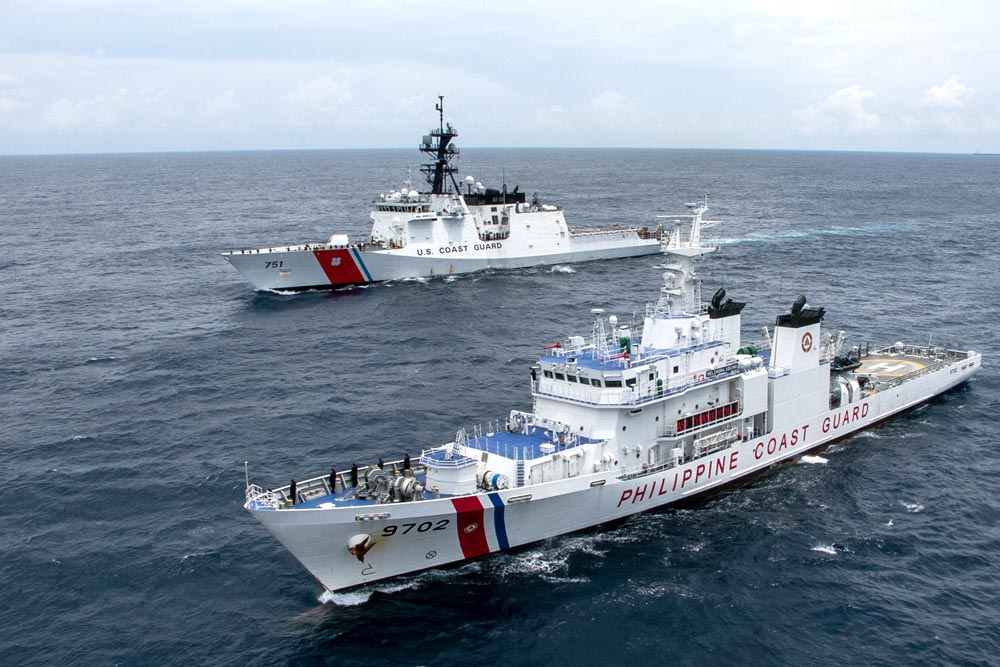
USCGC Waesche (WMSL 751) and BRP Melchora Aquino (MRRV-9702) sail and conduct search and rescue in this undated photo. An official from the National Bureau of Investigation on April 23, 2025, informed a Senate panel about potential espionage by Chinese maritime forces concerning the surveillance of Philippine vessels on their way to the West Philippine Sea. (pacom.mil)
SURVEILLANCE OF Philippine vessels en route to the West Philippine Sea may be part of a wider and coordinated espionage operation tied to Chinese maritime forces, the National Bureau of Investigation (NBI) told a Senate panel recently.
Senate Majority Leader Francis Tolentino, who chairs the Special Committee on Maritime and Admiralty Zones, raised the alarm over intelligence reports that Chinese vessels were aware of Philippine resupply missions even before the ships departed from Palawan, suggesting possible coordination with foreign nationals recently arrested for suspected spying.
“There is a possibility, Mr. Chair, kasi ‘yung Palawan 5 po ang sinu-surveillance niyan (ay) yung mga vessels po natin na papuntang (because the so-called Palawan 5 are doing surveillance to our vessels going to) WPS,” lawyer Van Homer Angluben, executive officer of the NBI Cybercrime Division, said during the hearing.
“Meron po kaming mga nakuhang information from the military na bago pa makaalis ‘yung barko natin sa Palawan, alam na po ng mga vessel ng China na parating na ‘yung resupply mission natin (We were able to get information from the military the before our vessels can leave Palawan, Chinese vessels already know that our resupply mission is coming),” he said.
The “Palawan 5” refers to the five Chinese nationals arrested separately in January for suspected spying on Philippine Navy and Philippine Coast Guard assets in Palawan.
Angluben said the NBI, in cooperation with military intelligence units, is actively verifying intelligence packets linked to possible foreign surveillance.
The Senate inquiry, through Resolutions No. 1267 and PS No. 1328, also focused on the March 19 arrest of six Chinese nationals and one Filipino in Subic, suspected of conducting intelligence operations against the Philippine government.
Tolentino said the espionage campaign had reached crisis proportions, noting that the surveillance appeared to involve sensitive data on military preparedness, naval operations, and national infrastructure.
“Tunay na ang mga gawaing ito… ay may ma-ituturing na kriminal (These activities can be considered criminal),” he said, citing Commonwealth Act No. 616 and provisions of the Revised Penal Code.
He also linked the Subic arrests to prior cyber intrusions on the Department of Science and Technology, Department of Information and Communications Technology, and Philippine Health Insurance Corporation.
In his closing remarks, Tolentino commended the arresting authorities and presented a stark warning over the scale of the uncovered activities, hoping that the arrests “would lead to prosecution and eventual conviction of the arrested personalities.” (Wilnard Bacelonia)



